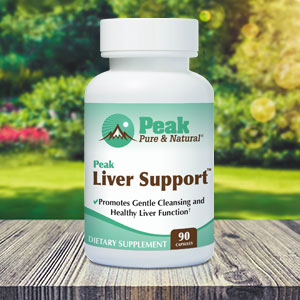Get Easy Health Digest™ in your inbox and don’t miss a thing when you subscribe today. Plus, get the free bonus report, Mother Nature’s Tips, Tricks and Remedies for Cholesterol, Blood Pressure & Blood Sugar as my way of saying welcome to the community!
The surprising hormone that helps burn belly fat

The hardest part for me, when it comes to dieting, is feeling hungry. I’m sure I’m not alone in that.
We can thank ghrelin, the body’s “hunger hormone,” for that. Before each meal, our ghrelin levels rise, signaling the body that it’s time for food. Then, once we’ve eaten, our ghrelin levels drop again.
At least that’s the way ghrelin is supposed to work. Unfortunately, it’s not quite that simple.
When you try to change the way your body wants to eat or is used to eating — for instance, by limiting your food intake — the shift actually causes your body to produce more ghrelin. And once it starts, the body doesn’t stop making ghrelin until you consume some food.
In short, your “hunger hormone” won’t stop pestering you until you give in and eat something. That makes it tough to resist the siren call of snacking, which in turn makes losing weight more difficult.
Or does it? Imagine my surprise when I discovered some research that turns everything I thought I knew about ghrelin on its head….
High ghrelin levels and visceral belly fat
In a secondary analysis of an 18-month clinical trial conducted, researchers in Israel discovered that high fasting levels of ghrelin, which rebound after weight loss, can help reduce belly fat and improve insulin sensitivity.
When we are sleeping, our bodies go into fasting mode, and our ghrelin levels rise overnight. During the clinical trial, researchers found that dieting leads to an elevation in these fasting levels of ghrelin, and this rise is associated with visceral fat loss in the abdomen as well as better sensitivity to insulin.
Based on these results, people with higher fasting ghrelin levels following weight loss may have a lower risk of developing diabetes or other diseases associated with metabolic syndrome and a higher risk of heart disease.
“The findings suggest fasting ghrelin levels may serve as a valuable indicator of cardiometabolic health following weight loss,” says the study’s senior author, Iris Shai of Ben-Gurion University of the Negev in Israel and the Harvard T.H. Chan School of Public Health in Boston.
The “green” Mediterranean diet may be key
What’s even more interesting is that following a “green” Mediterranean diet gave an even bigger boost to fasting ghrelin levels.
The study involved participants with either abdominal obesity or abnormally elevated cholesterol. During the study, one group of participants followed a protein plant-based Mediterranean diet that excluded red meat and included green tea and a green leafy vegetable called Mankai, a high-protein form of the aquatic plant duckweed.
This “green” Mediterranean diet group had double the rise in fasting levels of “hunger hormone” than those who followed a more traditional Mediterranean diet or general healthy dietary guidelines. And this happened despite all three groups having similar caloric restrictions and weight loss.
“The elevation in fasting ghrelin levels might help to explain why the green Mediterranean diet optimized the microbiome, reduced liver fat and improved cardiometabolic health more than the other diets in our study,” Shai says.
Researchers say the results suggest fasting ghrelin is an essential hormone for reducing belly fat and recovering sensitivity to insulin through diet.
“The differential, diet-specific response in fasting ghrelin levels elevation might suggest another mechanism in which distinct dietary regimens, such as the ‘green’ Mediterranean diet, reduce cardiometabolic risk,” says Gal Tsaban, a researcher and cardiologist of Ben-Gurion University of the Negev and Soroka University Medical Center in Israel and first author of the paper.
The “green” Mediterranean diet group lost more weight and waist inches than the other two groups. They also experienced a drop in their blood pressure and LDL (or “bad”) cholesterol and a nearly twofold reduction in their 10-year Framingham Risk Score, which substantially lowers their risk of developing serious heart disease over the next decade.
Mastering the snacking urge
Clearly, if you want to shed visceral abdominal fat, boosting your fasting ghrelin level is a good way to go. But how can you fend off the munchies that accompany that “hunger hormone” increase?
One thing I’ve done is to swap out sweets for an apple or pear. And if I’m craving a salty snack, I’ll cut up some carrots, peppers, and/or cucumbers and have them with a tablespoon of hummus. The fiber in these fruits and vegetables helps keep me full longer than a candy bar or bowlful of chips or pretzels. And these low-calorie snacks are right in line with a “green” Mediterranean diet.
Editor’s note: Are you feeling unusually tired? You may think this is normal aging, but the problem could be your master hormone. When it’s not working, your risk of age-related diseases skyrockets. To reset what many call “the trigger for all disease” and live better, longer, click here to discover The Insulin Factor: How to Repair Your Body’s Master Controller and Conquer Chronic Disease!
Sources:
Higher fasting ‘hunger hormone’ levels from healthy diet may improve heart health and metabolism — Endocrine Society
New And Improved Mediterranean Diet Reduces Heart Risks Even More — Easy Health Options














